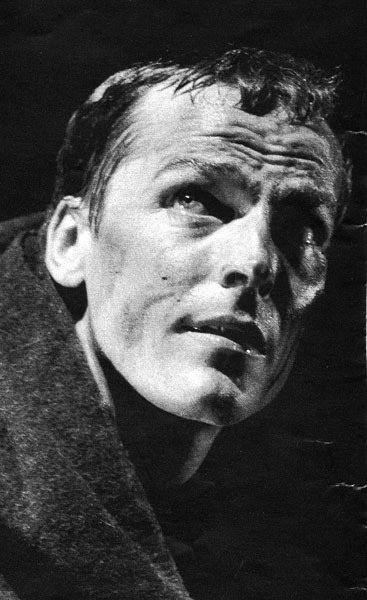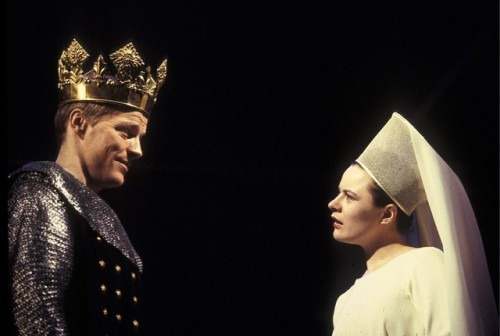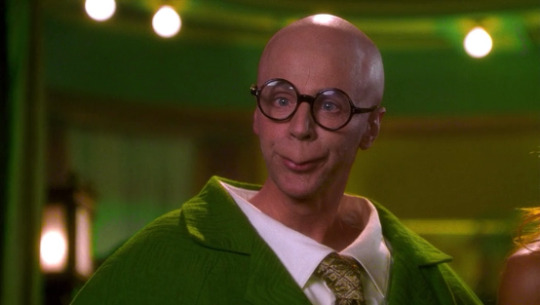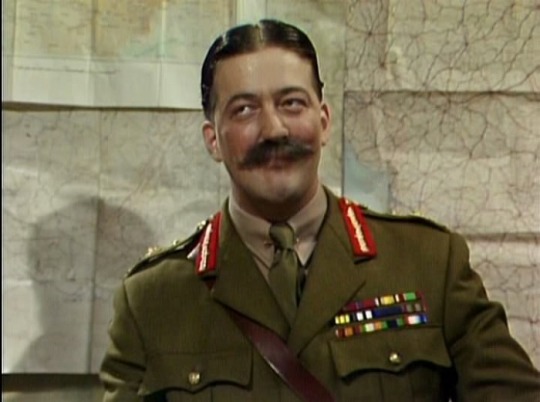#i need to perform some research methinks
Explore tagged Tumblr posts
Text
no offense but i did Not realize that so many artists don’t write their own songs. this is like a couple years ago when i had a menty b over learning that most rappers don’t produce their own beats. like bruh i thought we were just doing everything?? wym some dude wrote frontline by kelela??? WHAT
#maybe this is a sign to not be so hard on myself for struggling with songwriting#bc it’s HARD!!!! not a lot of ppl can do it well!!!#but it’s just crazy to me that like. an artist’s entire discog can just be written by other ppl#like what#ig this also depends on what the writing credits really mean. like did they really write 100% of the song or was there some collaboration#like did the artist write all the lyrics and u just did the music? or did u write the lyrics too?#i need to perform some research methinks
3 notes
·
View notes
Text
Once upon a time, Iain Glen was Henry V
youtube
Sorority, tip-toe with care to Youtube and DO NOT leave a trace behind for fear someone might outlaw this video. @scratchybeardsweetmouth found this treasure after I alerted her to a shortened version, also hidden on youtube, of a now extinct VHS tape of excerpts of Shakespeare plays, staged by the Royal Shakespeare Company (RSC) in 1995, featuring our young bear as Henry V.

I did the research and the RSC has since issued a DVD of this compendium (2003) but did not include Henry V (whyyyyyyy ?!!). The only copy of the full-length version I could find is a VHS still in circulation in a public library in the Bronx (!). Of course, you may go the RSC archival library and watch it there... but the youtube hidden treasure will give you a good taste of our young master Iain Glen’s INTENSE performance of this amazing Shakespeare character.



We’re lucky in that the youtube segment includes the St. Crispian monologue !
When I teach Film Aesthetics, I do a comparison of Laurence Olivier's St. Crispian speech (1944) and Kenneth Branagh's version (1989): the similitudes and differences in the mise-en-scene, performance and overall visual and aural style. I won't go into the details, because we’ll still be here tomorrow (well I included SOME below ;-). Suffice to say that this monologue makes me cry every time, especially in the Branagh version when the rhythmical pattern of his delivery matches the musical beats once we've cut to his close-up. It’s impossible to remain stoic when we get to the "band of brothers" segment. A rousing "give me courage before the battle" speech that plays on the notion of brotherhood, the desire to belong, to each other and to something greater than ourselves, to overcome our fears in order to become heroic. There's a lot of that at the end of Season 7 in GoT when Jon, Jorah and their unlikely companions go get a White !
So when I discovered that Iain Glen had played Henry V in the 90s, my heart sank knowing that I'd never be able to see that. Plays are so rarely filmed. Discovering that clip on youtube, even truncated, felt unreal. @scratchybeardsweetmouth found me/us an even better version :-))) Glen's approach is fascinating in that (I feel) he plays the King in a very passionate and, at times, dolorous way, like a martyr really, willing to sacrifice himself. I'd follow him to keep him from dying in the process ;-)
What do you think @unterwasserfisch, our resident theater expert ? :-)

https://www.youtube.com/watch?v=qk_rPHoSc8w
the Olivier version
https://www.youtube.com/watch?v=bvFHRNGYfuo
the Branagh version
In the case of Olivier, he very consciously goes for the theatrical feel. He didn't have to do it this way. It's an homage of sorts. But it's also a bit deceiving because he does move the camera, gets nearer to the lens, modulates his speech, does murmur before projecting again. Nonetheless, the most striking element of his mise-en-scene is his use of the long take. It keeps the performance whole and creates an almost subliminal tension: the longer the shot lasts, the more we're left waiting, hanging on the performer's words. And THAT certainly gives us an experience akin to the theater where we experience the narrative and performance is real time with no editing. As @scratchybeardsweetmouth, pointed out, even the speech was made to be loud, as in a play, because the idea was that you needed to be heard by the farthest person in the room. Brannagh's approach is more naturalistic, includes more murmuring, playing for the camera and not the men standing far away in the forest ;-) But it’s the pauses that kill me :-) In class, I replay that bit over and over again (cue: 2M49 on the youtube link ;-) Goosebumps ! The amazing thing in this moment is that Henry seems in tune with the very fabric of filmmaking. It's as if he can hear the extra-diegetic music we're hearing and creates an emotional dialogue with it. He's in a natural position of power as king and military leader but him "hearing" the music enhances his uncanny power of persuasion even more :-)
Before we get to Glen’s version of the St. Crispin Day monologue, we are also privy to his very moving soliloquy which prepares him for his rousing speech. The King, left alone, suffers the loneliness of being the one at the top and not a simple man. He tells God he hates the pomp and ceremony surrounding him, because it isolates him. He wants to be one with his men. He's afraid for them in the coming battle, fears he won't be able to rouse them, rally them, and knows that many will die. The vulnerability Glen as Henry shows in this scene is a great way to set the table for the St. Crispian speech because he seems so shaken, we don't expect he'll be able to lead them. But when Glen/Henry finds the right words, composure, emotion after a night of self-doubt and almost self-loathing, it surprises us, moves us and indeed makes us want to be part of his Band of Brothers :-)
Must include the actual words !
KING HENRY V
What's he that wishes so? My cousin Westmoreland? No, my fair cousin: If we are mark'd to die, we are enow To do our country loss; and if to live, The fewer men, the greater share of honour. God's will! I pray thee, wish not one man more. By Jove, I am not covetous for gold, Nor care I who doth feed upon my cost; It yearns me not if men my garments wear; Such outward things dwell not in my desires: But if it be a sin to covet honour, I am the most offending soul alive. No, faith, my coz, wish not a man from England: God's peace! I would not lose so great an honour As one man more, methinks, would share from me For the best hope I have. O, do not wish one more! Rather proclaim it, Westmoreland, through my host, That he which hath no stomach to this fight, Let him depart; his passport shall be made And crowns for convoy put into his purse: We would not die in that man's company That fears his fellowship to die with us. This day is called the feast of Crispian: He that outlives this day, and comes safe home, Will stand a tip-toe when the day is named, And rouse him at the name of Crispian. He that shall live this day, and see old age, Will yearly on the vigil feast his neighbours, And say 'To-morrow is Saint Crispian:' Then will he strip his sleeve and show his scars. And say 'These wounds I had on Crispin's day.' Old men forget: yet all shall be forgot, But he'll remember with advantages What feats he did that day: then shall our names. Familiar in his mouth as household words Harry the king, Bedford and Exeter, Warwick and Talbot, Salisbury and Gloucester, Be in their flowing cups freshly remember'd. This story shall the good man teach his son; And Crispin Crispian shall ne'er go by, From this day to the ending of the world, But we in it shall be remember'd; We few, we happy few, we band of brothers; For he to-day that sheds his blood with me Shall be my brother; be he ne'er so vile, This day shall gentle his condition: And gentlemen in England now a-bed Shall think themselves accursed they were not here, And hold their manhoods cheap whiles any speaks That fought with us upon Saint Crispin's day.
And finally, the youtube montage includes the “love scene” between the King and his french fiancee. A delight ! Especially given that it amazingly foreshadows Jorah (see the passages in bold ;-) and the awesomeness that is Iain Glen in his more mature years.
KING HENRY(...) Curse my father’s ambition! He was thinking of civil wars when he conceived me, and consequently my outward appearance is harsh and steely. I intimidate ladies when I come to woo them. But I promise you, Kate: the older I grow the better I’ll look. My comfort is that old age, that poor preserver of beauty, can’t make my face any worse than it already is. If you have me, you have me now at my worst; and if you have me, you’ll appreciate me better and better. (...) KATHERINE Dat is as it shall please de king my father.
KING HENRY Oh, it will please him, Kate. It will please him very well.
KATHERINED it shall also content me.
KING HENRY With that I kiss your hand and call you my queen.
(And brownie points to Glen for speaking a few words in french. As if I wasn’t already putty in his hands ;-)

118 notes
·
View notes
Text
[Where My Twin Watches]: Full Metal Alchemist Brotherhood Episode 32
[Tephi]: Finally.
Last time: Ed set extreme debt repayment terms, Kimblee gave a gift, and Scar dabbled in facelifting. Onwards!
The search for Shao May continues, although all the Elrics have found so far are little black and white pugs, not pandas. Meanwhile their quarry is with the person they’re actually trying to find for lessons, grabbing supplies for the road trip north. Episode 32 - “The Fuhrer’s Son” Ooh! An episode around the Fuhrer’s kid? We’ve seen a him a few times when Bradley’s with his family, I’m down for an episode that explains how this all works. We know that he’s adopted, but not why the Fuhrer’s gone and gotten married as well. All just a cover to pose as human? At the train station once more, Conductor’s sending off an East City train. May runs through the crowds, slowing down by some MPs who are discussing Scar. Meaning she’s distracted and bumps into someone, dropping her groceries and Shao. Whoops. Nothing to see here, officers? ...uh… So we aren’t actually supposed to buy this disguise, right? I mean, I’m fairly certain that’s a dude in a paper-thin disguise as an old lady. Keeping track of the Xing princess? If so, for who?

Wow, for a princess in a faraway land May is really free with her information, saying that she’s transferring to a North-bound train. Then again, she decided Yoki was a person of good repute. Disguised Old Lady notes… whoops. Apparently she actually is a lady, seemed confused at such an odd cat following May. Later that night, down in the sewers, a cloaked figure is supporting another. Wait, Scar is here? Then who was the cloaked figure that May guided onto the train? I’d thought that it was Marcoh still recovering from his Hand of Rearrangement, but for some reason they’re down here in the sewers and not on the outbound train. How do they expect to get to the North, then? Cops are chasing the duo with flashlights and guns, until the duo becomes just Scar pulling a Creepy Clown at them. Rockslide, and escape through the dust. Later, coppers! In Central Kimblee’s going over the case files, noting that the Scar Sightings are trending towards the West. Buddy, I get leaving a false trail, but how far are you going to go before turning right? Kimblee’s on the case now, takes his entourage of Blue Shirts to a large marble building… and passes an old lady with a cane and shawl on the stairs. Once at the train station could be brushed off as odd, but seeing her here now? Old Lady, what are you up to? Kimblee even picks up on it despite this being his first interaction, calls her suspicious but then turns back to pursuing Scar. Methinks you’re going to regret that later. A church bell is ringing on a clear day, we’re UUUUUGH we’re at Maes Hughes’ grave. Stop reminding me of his fridging, show. Roy is paying his respects as YOU. Ok, who is Old Lady? She shambles up and makes small talk with her, do you… … … WHAT GENERAL GRUMMAN?!

Wow, just… wow. Ok, back to serius biznis. I know that it’s difficult, Roy, but keep it together. Dude may be eccentric, but he is a General. You called him for a reason. The Elrics are taking a break from the fruitless panda search to look up Alkahestry in the library. Oop, back to the Colonel and the General. Grumman’s been updated on Central being controlled by the Goths, and his minions scattered/held hostage. Grumman talks about how he himself was asked about his opinions on immortal soldiers, when he dismissed the idea as ridiculous he found himself transferred to the East. On the plus side it means he was free from the Goth’s corruption, but unfortunately it’s left him off to the side cleaning up messes. Even the small successes he’s earned, like pacifying the Liore riots, were undone when Central forces were deployed to replace his own. And here he is, so close to retirement welp he’s dead. Nice knowing you, ya kooky general. Alright, so the General’s in on the plan. But more immediately important to our heroes, he recognises the panda sketch that Roy is carrying. Quick, to the library! No luck for the Elric brothers, in all the library they can’t find anything about Alkahestry. Guess they’ll have to head to Xing- HE RETURNS! ALL HAIL THE MIGHTY ARMSTRONG!

Towering over the bookshelf, he easily pushes them aside to reach the shocked Ed, then shushes him for being loud in a library. Never change, man. Well, I dunno if I’d have send The Mighty Armstrong to ‘quietly’ tell Ed about his target moving North, but you gotta use the tools at hand. Ed’s got a path now, time to- A letter of introduction? For ‘her’? Someone past North Command, at a spooky looking black wall-

-an officer nicknamed “The Northern Wall of Briggs” Major-General… … … … Major-General Armstrong Tank-Lady is Major-General Armstrong … … YYYYYYYYYYYYEEEEEEEEEEEEEEESSSSSSSSSSSSS Move over mid-ep character cards, I no longer care about Mrs. (?) Grumman or even the Fuhrer’s adopted kid Selim Bradley. You think that you can tell me that there is another Armstrong in this setting, who’s basically in charge of the Night’s Watch?! Fudge that, push those nobodies aside and get moving north!

Wait The new Armstrong… how is she related to our current version? She didn’t look old enough to be his mother, and sharing the same name… Tephi. Tephi. So help me, if you knew that we would be getting to a sister of The Mighty Armstrong and didn’t make me watch this show faster- Screw it. Calling it now, I need to see The Powerful Armstrong as soon as possible. I am now updating at least twice a week, Wednesdays for sure and whenever I can fit an episode in elsewhere. I need this character! Ok, freakout is mostly over. Moving on! Scar and Marcoh are still heading the wrong way, although as they’re on a bridge over a bunch of train tracks I think I know their plan now. MPs are catching up Scar and now-obviously Yoki, the two are cornered on the bridge… just as a train whistle blows! Now, as long as the cops just stand there and don’t try to move forward and restrain you, this should work. Oh yeah, smoke from the train! That’ll help, the cops just stand uselessly as the train passes and the two fugitives are obscured, and are shocked to see them gone after the train passes. A+ job fellas, I’m sure your boss will be happy with your performance. Wait, train for West City? Why? Don’t you need to go north?

Poor Al is still pouring over the books for any hint on Alkahestry, remarking May’s use of long-range transmutation. Huh, so Alkahestry differs in being more capable of medical uses and in ranged abilities? I wonder if Alchemy has any advantages over it? Sudden shorts? Ah, it’s you. The kids who I was initially excited to learn more about but now view only as an obstacle from The Powerful Armstrong. Go on, shoo! Ok, fine. I’ll give you points for recognizing Al as the Fullmetal Alchemist’s brother, not Fullmetal himself. But as exciting as it is to meet a Main Character, watch the volume; this is a library after all. Selim/Fuhrer Jr. asks about all the books Al has piled around, Al wishwashes about researching medical techniques when Ed runs up, yelling about heading out of town. Aw, Selim’s a fan of Ed, too! Doesn’t know enough to not call Ed short, though. Ed is angry rrright up until Selim’s Secret Service put guns up to his head. What, you two didn’t know this was the Fuhrer’s kid? Awkward… No, scratch that, this is awkward. Getting invited to the Bradley household for tea? How did that happen? I get that Selim is a fan of the Elric Brothers, but still… smalltalk has turned to Selim talking about learning Alchemy and working with his father. Ouch. They can’t know what Bradley is really up to, of course, but it’s hard reconciling what we know with this little family, a son in awe of his father and a mother wistfully remembering their first date. Um. Papa Bradley’s home. And he is NOT happy to see the Elrics. He’s already been established as their enemy, holding the threat of harming Winry against them. To walk into his own home and see those two sitting across from his wife and kid? Simple cover or something more, he’s clearly taking that as a threat.

The awkwardness increases! Ed struggles to reconcile this peaceful little family with the truth, and Bradley makes a veiled reference to Ed’s own family before heading back to work (Selim pouting at the briefness of the visit), with Riza following behind Eventually Ed and Al make their goodbyes, promising Selim that they’ll visit again later. I wonder, will that be before they at best arrest or at worst kill his adoptive father, or after? Regardless, time to move on. North! Scar and Yoki are still hanging out in their train car, as Kimblee’s goon squad searches others. Kimblee looks over the map, notes the rocky mountains. Train slowing down at curves, with a person who can change the ground for a safer landing? They jumped off way before West City, and Kimblee sees something to the north that makes him grin. North, north, north, everywhere we look people are heading north. Let’s get there already! Post-credits scene! Ed and Al are on the train, looks like Ed’s added some winter padding to his regular red coat outfit. The brothers remark that it might be neat to see some snow, they never got much back home. Weak midwest winter weather, am I right?
2 notes
·
View notes
Text
Why GAI and/or the singularity is much closer than you think
I've been interested in neural networks and AI for a couple years now. I am a hobbyist programmer and have played around with the common machine learning libraries like tensorflow here and there.
Over the last few months I have been particularly impressed with somethings I have seen in the space recently. Deepfakes in particular have become incredibly good over the last year. Here is one of the best ones I've seen so far.
A couple months ago I was playing with text generation based off of the keras model which is able to create fairly convincing text that sounds like something Nietzsche would write which can be trained on an ordinary desktop.
What I found so incredible is that the machine learning model knew nothing about English or even language. The only thing that was hardcoded was the alphabet (plus a few ASCII characters) and **from the training examples it only took about 45 minutes for it to learn English, grammar, a vocabulary, and even replicate (albeit not perfectly, but damn close) the writings of someone who many people consider a genius. This to me was quite puzzling considering that super computers are still not even close to the processing power of a human brain let alone my desktop computer.
Human brains are still way better than computers
In 2014, researchers in Japan tried to match the processing power in one second from one percent of the brain. It took the 4th fastest supercomputer in the world (the K Computer) 40 minutes to crunch the calculations for a single second of brain activity. Of course human brains aren't as good at certain tasks as computers due to the design differences, but nonetheless the processing power of the human brain is still 240,000x of supercomputers , and about 80,000,000x of my desktop computer according to my back of the envelope calculation.
If the human brain is millions of times faster than computers, why is AI already beating it in certain tasks?
Many people consider language to be a very high order function and one of the traits that distinguishes the human intellect above all other creatures, and yet this trait can be convincingly replicated in an hour? How is this possible?
To make things even crazier, researchers published one of the best text generation models I have seen yet called GPT-2 just a few months ago. It is even better than the previous model I was playing with. There is even a subeditor dedicated to bots created using this model that I recommend everyone check out called r/SubSimulatorGPT2. Without context and knowing that this is an AI you'd probably think most of the comments were generated by humans, so it already passes the soft turing test.
So how is it that machines with 80,000,000x less computational speed/power can already replicate human like behavior?
Raw computer power is a faulty metric for GAI
When estimating when we will have GAI or hit the singularity, almost all the estimates base it off of purely computing power relative to human brain power. The idea being that once a computer can perform as many operations per second as the human brain, we will be able to create GAI. This estimation puts GAI happening around 2040-2060 if current hardware trends persist.
I have come to the conclusion that this estimation could be off by an order of magnitude. Why is it off? Because as with my experiments with AI on my home desktop, it demonstrates that you don't need human brain level computational power to replicate human level behavior. Convincingly human text generation is already possible on desktop computers, which I argue passes a "soft" version of the turing test. Which just means that the average person (without context) would not be able to tell or wouldn't suspect that it was created by a bot.
The fact that these desktop AIs are passing soft turing tests despite having access to significantly less computational resources should tell us that using computational power as the metric for the GAI is completely wrong.
Think Smarter, Not Faster
I think the reason why is because most people, including myself until recently, naturally believe the human brain uses the most effective algorithms for its computations. However I think that this probably self evidently false. Natural selection doesn't evolve organisms to be the best, it just evolves them to be "good enough" to survive in their environment. It is entirely possible that there are far more efficient designs of a brain that there hasn't been enough time or selection pressure for us to evolve. We are not the apex, or the best we could be.
It may be true that the human brain is superior in raw processing power to supercomputers, but in terms of its approach to processing information algorithmic-ally, it could be very, very bad. So as to say it is not using its processing capability to the fullest possible extent.
When approaching computational problems the algorithm you choose or develop can lead to vastly different outcomes in resource usage.
Algorithms > computational power
Consider an optimization algorithm like a genetic algorithm vs a random search. Richard Dawkins wrote a computer program called the weasel program. For a computer to randomly come up with some arbitrary input phrase like "METHINKS IT IS LIKE A WEASEL" it would take longer than the age of the universe. However, by using a genetic algorithm instead of an entirely random search a common desktop computer can do it in a second.
This is a demonstration of the power of a superior algorithm. There are many examples of getting massive improvements in computational time simply by changing the algorithm being used. So in the same way, it could be that neural networks can find vastly superior algorithms for certain computational tasks than whatever algorithms are genetically hard-coded into the human brain, thus significantly reducing the need for computational power.
We have no idea how well our brains are optimized relative to how well a neural network could be optimized for the same problem. But as with the examples above, it appears that neural networks can already find algorithms which are millions of times more efficient than whatever the human brain need/uses to compute the same task.
The limits to AI going forward have more to do with their ability to optimize themselves than computational power.
Its the mathematics behind the calculations that can give exponential improvements faster than we can develop better hardware for raw computing power.
So because of the fact that we are using AI to develop algorithms that are already better than humans on certain tasks despite being at a huge disadvantage with computation power, I think that it is possible to create machines that can do virtually any job a human can do but with significantly less compute power needed. This moves the time frame to be much much earlier than people think.
Potentially within a decade virtually any human job could be replaced with an AI since its not nearly as hard as people for turing complete neural networks to come up with superior algorithms than that which the human brain uses.
TL;DR: Due to algorithms (mathematics) leading to massive improvements in computational time faster than hardware is getting improved, most estimates for GAI are probably way off. We could see GAI within 10 years.
submitted by /u/cryptonewsguy [link] [comments] source https://www.reddit.com/r/Futurology/comments/c0ayn1/why_gai_andor_the_singularity_is_much_closer_than/
0 notes
Text
More Than Just Dander
First, a sort of meta-comment in the form of a shout-out to HCRenewal's intrepid editor, Dr. Roy Poses, for his just-published analysis of what we might call "blogging: rise and fall." He sees decline reflected in publications long devoted to health and health policy, yet now flaking off. Methinks, however, despite the usefulness of his overview of recent decades, Dr. P need not fret excessively. Water spilling out of the barrel's lip will slow down once folks come along and punch a whole bunch of little mid-section tweet-holes in it. Information still flows. (Sort of.) In any case, surely there's overlap between blogs' and tweets' readerships. Surely well-researched and -reasoned long form still has its place. Unfortunately, hard to know for sure: it's hard to measure. Nobody's polling these folks and to my knowledge information scientists haven't published much--a quick search inside Google Scholar bears this out--that's of a quantitative nature. So we're left with admittedly rather unsatisfactory anecdotal reports on people who need blogs like ours and find their way to it. Congressional staffers you know who you are. Rightly or wrongly, I'm hopeful. Maybe we shade this a little by the suspicion that many younger social media users share with me a short attention span. Hence they come to rely more and more on quick hits. In any case, let's hope this is evolution and diversification, not just entropy and a race to the bottom. Now to my theme of the day. Yet again the dander hath risen for I've lost count how many times around what ails our health delivery systems. And so is my lunch: the gorge, too, hath risen. The miscreants' very relentlessness is nauseating. More, then, on two of them that keep cropping up here like those small burrowing insectivores in this tedious yet oddly riveting game of Whack-A-Mole. A. Chicanery at the VA: looking back and looking forward. On balance, and despite its many flaws, VA health's operation in all its enormity is not itself a miscreant. Different story for those folks trying to destroy it from within, on the dubious premise that lest we privatize it it's irredeemable. Search this blog on "VA Cetona" for detail on such matters. Why does this even happen? We've described the VA's Shadow Rulers (search here on that as well) in these pages. The SR's fall in the 0.1%. Why do they need or want the headache of trying, in what's fated to be a futile effort, to upend and hollow out the health lifeline extended for nearly a century to patriots returning from the military? When the left gets power it tries to expand and improve government. (Of course the efforts can unfortunately go awry, viz. Hillarycare in the 1990s, and cast shade on future attempts.) When the right gets power, at least in the two generations since an actor became president in 1980, government is seen as "not the solution but the problem." The response may be to try to rejigger and downsize. "Drown the baby in the bath." Or, perhaps far more likely, something else now happening in the VA and throughout the Trump kakistocracy. Namely, don't seize power to return it to the people. Seize it in order to use it in a third-dimensional play to drain resources. As for the first two dimensions, don't even try to improve--David Shulkin's mistake (see below)--or eliminate (despite Mick Mulvaney's baby drowning proclivities, hugely unpopular) care provided by the VA. Not when there's a third way: divert those resources. In fact, from the earliest instances of frontier exploitation to the newest frontier we have--our heretofore private personal information--despoliation has been the watchword, the core motive, the secret sauce: don't ameliorate. Don't eliminate. (Honestly: viz., Shrub's expansion of guvmint.) Despoliate. It is, as Shrub used to say (maybe), one of our country's most basic pieces of strategery. Such a strategy was discussed (and surely it's as old as the hills) by Times tech reporter Steve Lohr in a recent piece on, of all things, artificial intelligence. ("Elixir of prosperity [or] job killer"?) Lohr makes clear that what's old is new again, linking the asset of private data to all the other assets that've been strip-mined. "In the American model," notes Lohr, "coming from Silicon Valley in California, a handful of Internet companies become big winners and society is treated as a data-generating resource to be strip mined." As Buffy the Vampire Slayer once said, "can you spell 'duh'?" Strip mining started with the earliest settlers, and now ... data, the final frontier. Same deal, though. The American model, and economic maldistribution, and so much of our plight is bound up with this baked-in trait, which seems to've seeped into society's DNA. Or else originated there. Find a mine. Strip it. Let others pick up the pieces. But let's go back to that last credible VA Secretary. How do we know that Shulkin pissed off the strip-miners? Why, just read what he himself wrote in a scholarly publication just a few months ago in the prestigious New England Journal. In a piece entitled "why the VA needs more competition," he and closely-associated Michigan colleague Kyle Sheetz first declared, unequivocally and repetitiously, competition: good!!! Emphasis in the original through repetition. Clever. After reassuring their audience how much they liked competition they let the cat out of the bag in the final paragraph of a long-ish article: "Privatizing the VA by offering unregulated access to private-sector providers is probably not feasible, necessary, or the best way to care for veterans." That's exactly what the quietly-undermining, unelected Trumpsters pushing for strip-mining veterans' health care didn't want to hear. We know (see below) how that came out. Similar in emphasis is a piece just out (January 2019) in the equally prestigious Annals of Internal Medicine, by (no pun intended) veteran federal health official Carolyn Clancy and her own VA/AHRQ colleagues. I'm perplexed at the way Clancy herself has hung in there (and yet she persisted) at the federal agencies to which she's contributed greatly over recent decades. I'm perplexed about how, within these agencies,she's been bounced around, most recently landing as the VA's "Deputy Under Secretary for Discovery, Education and Affiliate Networks." (That top's spinning so fast what I just wrote may already be superannuated news.) In any case Clancy et al. put their shoulders to Shulkin's wheel extolling the May 2018 federal MISSION legislation streamlining VA and non-VA care, and the ostensible role their new Center for Innovation might play in such an effort. They pointed out all the right innovation-cum-research caveats about the need for adequate data: "paying for value could backfire without accurate measurement of costs and outcomes." In this case they were certainly correct: privatizers in this particular world aren't interested in evidence-based anything. They're profiteers. (See: "Department of Education." See: "Department of the Interior." See: Environmental Protection Agency.) Shulkin's words saw the light of day about a month after the MISSION legislation, in the final days of June, 2018. But here's why I put Shulkin having "liked competition" in the past tense. By the time his NEJM piece appeared Shulkin, also accused of what I still deem to've been truly flimsy ethics violations, was already gone from his organization. By the end of March the Orange Man had already fired him. As a personal fiasco this was unseemly, since the VA secretary was a rare bird who both consented to be a hold-over from early administrations, yet managed early on to be a current POTUS favorite. Surprising? In this White House? In none of these events was there ever put forward any really compelling justification either for privatizing VA care or for starting with the assumptions that outside "leaders" and outside doctors could do a better job than--what with all their flaws--VA medical staff. Suzanne Gordon, a distinguished journalist and author, admittedly parti pris as a fellow of the Oakland-based 501(c)3 Veterans Healthcare Policy Institute, has just published an American Prospect piece on "Trump’s under-the-radar push to dismantle veterans' health care." Her central thesis is worth quoting in extenso.
[The Republican] strategy will not only erase what has been the most successful American experiment in government-delivered health care, but will also send veterans out into a private system that is more expensive, less accountable, and unable to meet their particular needs. The key notion underpinning the Mission Act, that the private sector can offer comparable care to the VHA, is deeply flawed. Study after study (after study) has found that the VHA generally outperforms the private sector on key quality metrics, and that private providers are woefully unprepared to treat the often unique and difficult veteran patient population. The most recent evidence came in a Dartmouth College study published in December, which compared performance between VHA and private hospitals in 121 regions across the country. The results: In 14 out of 15 measures, government care fared “significantly better” than private hospitals.
Gordon also has a new book out on this subject, as most supporters of the traditional VA system already know. Worth a look. Meanwhile the Senate and White House and those advising them clearly never really cared about quaint ideas such as "studies," "evidence," or "data." They cherry-pick a few quotes about the brusqueness of some VA care, which often is admittedly more bureaucratic than today's "consumer-facing" and endlessly-polling private-care organizations. You can find those quotes as well as I can--any search engine known to man will do the trick. Recent events on the larger political canvas make it abundantly clear, in the meantime. It's not about quality. It never was. It's about callously starting with a dismissive attitude toward government workers, then back-solving from there. Having worked for years at the VA, I can vouch for its quality as well as its struggle to assist the really needy patients who depend upon it. In fact, this new study shows quite rigorously that the VA was already dramatically reducing wait-times within multiple VA installations, right down to private-sector levels. So this branch of government has listened and successfully striven to achieve a performance level that's not just high-science but also high-touch, as medicine's "customers" (yechhh) have come to expect. The present furlough of federal employees proves the point. If you can dismiss someone as human collateral-damage, you don't start first by examining the good things they've done for you. You're an elephant poacher. Take the spoils and leave the carcass to rot. B. More on the Opiate Eaters Who Eat Very Well. Speaking of despoliators, Dr. Poses and I both wrote here recently on how, in the world of dangerous narcotics, this single family of mostly physicians, the Sacklers, garnered a much more grand market share than they like to let on. Time to add to that and earlier reporting with a few updates. When, in a different venue than the VA I was providing front line medical care to privately-insured patients, I noticed an arresting change. I saw more and more folks arrive in my office in shop-till-you-drop mode seeing opiate renewals. Always OxyContin, Percocet or Vicodin. If I didn't provide the "fill" they'd go next door. The demand built and built. The drug makers kept assuring they were safe and effective. At free dinners they paid an army of fellow physicians to regale us with the same message. Then those patients started to die on me. OD courtesy of "safe" Purdue (and others') product. Then in the past very few years, and I honestly should've seen it coming but didn't, the crisis spilled over from doctors' exam rooms into the political arena. It's actually something, unlike the VA, that's garnering a certain timid degree of nonpartisan interest in finding practical solutions, call it consensus even, starting with decriminalizing measures. But I find it gorge-raising to see the usual suspects continuously fighting the notion that as a society, we blew it with opiates. We blew it. With their help. I've spent a fair amount of time looking at similar medico-legal crises, including the far-reaching tobacco and environmental lead poisoning matters, as well as narrower ones such as evolving surgical and pharmacological approaches to certain diseases. In every case our tort system, combined with the deep pockets of those who are (allegedly) truly guilty, conspire to perpetuate Bleak House-style court battles over culpability. Strip miners seem to believe--or want us to swallow whole the absurdist notion--that they leave the world a better place. In the case of Purdue, this false consciousness is undoubtedly propped up by the Sacklers' prowess as culturati: one can hardly turn around, as I recently did at the Met in New York, without finding their name plastered on this gallery or that institution of higher learning. But the motive, be it within the strip miners' organization or that of a cultural organization, comes down to the same thing: "we need the money." Allegedly. Recent disclosures from "sources," including internal Purdue emails, clarify all this. Fortunately for us it turns out the founder's (Raymond's) son Richard was an early adopter--relatively so--of email. Both were physicians, but Richard was of the first generation to be granted an American MD. Email was barely used at all in 1995 when Microsoft first added a TCP/IP stack to its operating system, with the introduction of Windows 95. Then email really took off, by 2001 having a fair amount of penetration in the business world. So maybe we shouldn't be so surprised that Purdue Pharma was squirreling away some of Richard's pronouncements in an archival time capsule for our delectation nearly a generation later. According to a new court filing recently revealed in the NY Times, Richard Sackler said some, um, fairly incriminating things to say in these internal emails. Still earning his spurs as head of daddy's (and Uncle Mortimer's) company after a couple of years or so in the saddle, and undoubtedly aware of the dramatic uptick in addiction issues that I saw in my own clinic in those turn-of-the-century years, he allegedly blasted everyone else in sight--except, of course, his own ever-so-cultured family. "[T]he launch of OxyContin tablets will be followed by a blizzard of prescriptions that will bury the competition. The prescription blizzard will be so deep, dense, and white...." said Sackler fils. Based on no evidence reps were told to claim a “less than one percent" risk of addiction. As for that small subset of patients who did find themselves hopelessly addicted, the claim was to be made that “We have to hammer on abusers in every way possible.... They are the culprits and the problem. They are reckless criminals.” Now, hot off the press in 2019, the Guardian reports how this overall attitude has been replicated within the lobbyist-influenced government of Messrs. Trump and Azar. Since 2015 (pre-Trump! pre-Azar!) chair of the FDA's own Anesthetic and Analgesic Drug Products Advisory Committee, Kentucky anesthesiology professor Raeford Brown has bravely characterized the rift that now mires down the FDA in tackling this crisis seriously. Admittedly with cover from many in Congress, Brown said this to interviewers.
I think that the FDA has learned nothing. The modus operandi of the agency is that they talk a good game and then nothing happens. Working directly with the agency for the last five years, as I sit and listen to them in meetings, all I can think about is the clock ticking and how many people are dying every moment that they’re not doing anything. The lack of insight that continues to be exhibited by the agency is in many ways a willful blindness that borders on the criminal.
Scott Gottlieb, who's tying your hands? Is it this guy? The FDA seems to be replete with such interlocking-directorate staff, all trying to assure the "level playing field." And what is that playing field? Who are the players? We can answer this. Talk to the drug reps (I have). Except of course those who wake up and see what they're really doing, burn out and bail out. Talk to the lobbyists and the investors (I have). The watchword is not "safe and effective." It's blame-the-victim and lucrative. Let's get our motives straight here. You can do that just fine without listening to us at Health Care Renewal. Just listen to Richard Sackler in a time capsule from 2001. Ever wonder why the strip-miners need so much of our patients' loot? Well, take a little trip to Davos, Switzerland, where the rich and rich go to rub shoulders and tell each other how smart they are: YouTube offers a hint here. B'bye--too much dander, got to go take a bath. Article source:Health Care Renewal
0 notes